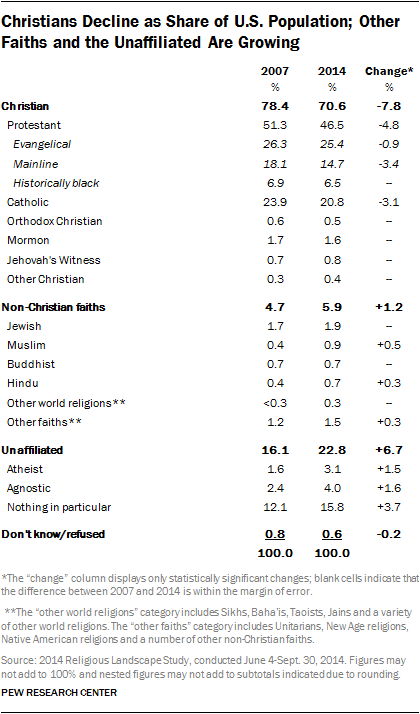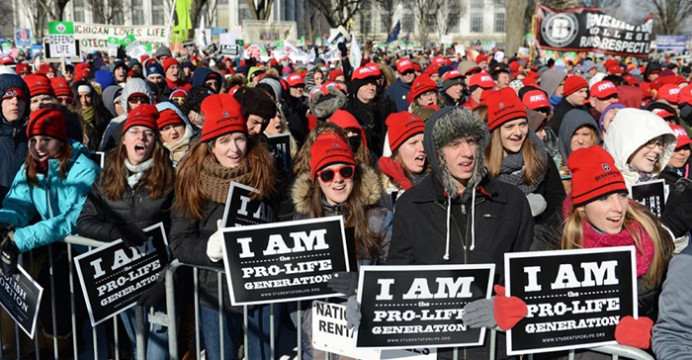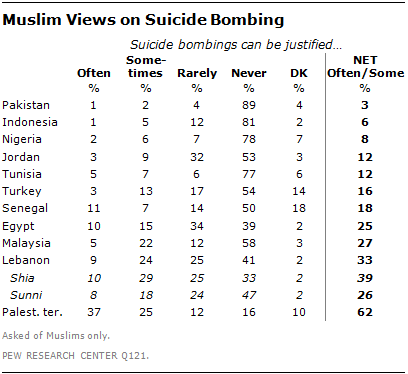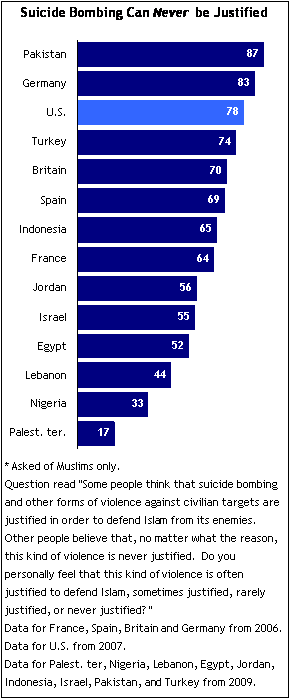Numbers: Americans’ Affiliation with Christianity has Dropped
The weekly report on research and demographics of the secular movement
by Julie Esris
There is some good news for the secular world: the number of ÔÇ£nonesÔÇØ, or those who are religiously unaffiliated, is increasing. A Pew poll released this week reveals that Christianity in America has experienced a sharp decline. The study, conducted in 2014, reveals that 78.4% of Americans identified as Christian in 2007, and that this number dropped to 70.6% in 2014. During the same seven-year period, the number of Americans who do not follow any religion has risen from 16% to 23%. In both studies, about 35,000 people were interviewed. The branches of Christianity that experienced the sharpest decline were liberal Protestantism and Catholicism. Evangelical Protestantism has declined as well, but not nearly as sharply. Although this drastic shift primarily reflects changing attitudes of young adults, older people are changing their religious views as well. This phenomenon also transcends race, gender, and level of education. Interestingly enough, a small portion of Americans disassociating themselves with Christianity are doing so in favor of other religions. Americans who identify with non-Christian religions has risen from 4.7% in 2007 to 5.9% in 2014.┬á
Why this sharp decline in Christianity? Why this rise in non-religious affiliation? Why this rise in affiliation with non-Christian religions? As the Pew study notes, the rise in non-religious affiliation is found mostly with young adults, and those identifying as unaffiliated are getting younger and younger. It could be that the ubiquity of the Internet is facilitating access to a variety of ideas that respondents had not previously been exposed to. This would certainly explain why young adults surveyed comprised the largest group of people identifying as religiously unaffiliated. Of course, growing acceptance of atheists, thanks to outspoken individuals like Christopher Hitchens and Richard Dawkins, makes it easier for atheists to be more open about their worldview.
The slight rise in affiliation with non-Christian religions could be largely a result of the growing acceptance of mixed marriages. In fact, the Pew study indicates that 39% of respondents report that they are in mixed marriages, up from 19% before 1960. Although these mixed marriages largely consist of one Christian partner and one secular partner, it could be that mixed marriagesÔÇöor at least what would be a mixed marriage if not for the conversion of one spouseÔÇöaccount for at least some of the increase of non-Christian religious affiliation. Some Jews, for example, often feel pressured by their communities to convert their non-Jewish spouse.
There is a flaw with this study, however. Although those surveyed were asked how important religion is in their lives, the question is too nebulous. Also, ÔÇ£religious affiliationÔÇØ is not clearly defined. Many people might nominally call themselves Christians and say that religion is very important to them, but it might only mean that the traditionsÔÇösuch as ChristmasÔÇöare important to them because they foster community and family. This is especially important in marriages in which one person converts. When a Christian converts to Judaism, for example, has he honestly and sincerely changed his beliefs? Does he no longer believe that Jesus is the messiah? Did he ever believe it to begin with?
To better ascertain what exactly religious affiliation means and just how important religion is to those surveyed, a poll should ask about specific beliefs, such as whether or not respondents believe in the Resurrection, believe that the Bible is the literal word of God, whether morality comes from the Bible, and so forth. The Richard Dawkins Foundation UK (RDFRS UK) did just that in response to the 2011 Census in the UK, which had claimed that 59.3% of respondents were Christian. When RDFRS UK asked these purported Christians about their specific beliefs, very few believed in the Resurrection, and many could not even correctly answer basic questions about the Bible. Even without taking these factors into consideration, peer pressure is still an issue. The research for the Pew polls was conducted via telephone. It is possible that a respondent would lie about his or her religious beliefs, knowing that a family member, who does not approve of secularism, is listening.
It is indeed very clear that secularism is on the rise, but it is not clear how many people who claim to be affiliated with a religion are truly dedicated to it.
















 Jeremiah Camara
Jeremiah Camara Richard Haynes
Richard Haynes